Insights
-
Anatomy of Dependence: How to Eliminate Rosatom from Europe

EU countries depend on cooperation with Russia in the field of nuclear energy. This has meant that even despite the Russian full-scale invasion of Ukraine, the Rosatom corporation has not been sanctioned and trade in this sector is growing. This situation is unfavourable for the EU and increases its vulnerability to blackmail from Russia. Moreover, it strengthens the Russian military. The EU should increase its efforts to diversify supplies and build its own capabilities in the nuclear sector.
5.9.2023 -
Europe needs a new energy security strategy

The European Union’s Energy Security Strategy was adopted in 2014, shortly after Russia’s annexation of Crimea. By now, not all of it has been implemented, and some of its points are outdated. After ten years and Russia’s full-scale attack on Ukraine—and in the era of a climate crisis—the EU’s energy security strategy needs to be rewritten. The basis of this strategy should be a cost-effective, but also decentralized, digitalized and decarbonized energy system based on renewable sources in which energy efficiency plays the key role. Such a future is worth fighting for.
28.7.2023 -
Billions of Euros for LNG and LPG still flowing from the EU to Russia

The EU embargo on Russian fuels did not extend to natural gas (including LNG, liquefied natural gas) or LPG (liquefied petroleum gas). In 2022 alone, EU countries paid as much as 16 billion euros for Russian LNG, a record high. Poland did not import any LNG from Russia, however it is the largest importer of LPG in the entire EU. In 2022, Poland spent about 700 million euros on Russian LPG. In this article, Forum Energii will explain how to close the loopholes in the EU embargo on Russian resources to finally eliminate them from the EU market.
29.3.2023 -
Electricity market design: one size won’t fit all

The energy crisis has highlighted imperfections in the EU power market. The current rules were created almost 30 years ago with the aim to incentivise large conventional power plants, but they now need to be adapted to new challenges.
17.2.2023 -
Russian oil disappearing from Europe

In 2021, about a quarter of the oil used in the EU, about €48 billion worth in total, came from Russia. The invasion of Ukraine prompted EU countries to impose sanctions on this commodity. However, the sanctions contain loopholes that have made Poland the EU’s largest importer of Russian oil. While sealing the sanctions regime is possible, electrification of transportation will in the long run safeguard against the risk of replacing dependence on Russia with dependence on other petrostates.
9.2.2023 -
Conclusions from the 7th capacity market auction - cleaner, but adequacy remains a challenge

The results of the seventh auction in the Polish capacity market clearly show the dilemma Poland has faced - existing high-carbon (coal) capacity can no longer be supported with this mechanism, while gas is risky due to the geopolitical situation. Although Polish energy companies have not completely abandoned gas projects, fewer appeared in the auction than previously announced. There is also clearly a greater variety of technologies than before - for the first time, contracts were granted to storage. The market is still expensive - for the second year in a row auctions ended in the first round and at the maximum price.
20.1.2023 -
Renewables can reduce fuel imports

Last year the import of gas, oil and coal cost Poland PLN 89 billion. This year, it will be much more - by the end of June it already amounted to PLN 85 billion[1]. The supply crunch and spike in fuel prices have become the source of an economic and energy crisis, and a means of exerting pressure on Europe. Meanwhile, renewables not only reduce emissions and energy prices, but also import dependency on energy resources.
29.11.2022 -
How to maintain Belchatow's energy future

Europe is going through its biggest energy crisis ever. The attention of decision makers is focused on ensuring energy and heat supplies in the coming months. Meanwhile, long-term challenges and problems in the energy sector that have not been solved before are only accumulating. One of them is the future of the largest power plant in Poland.
15.11.2022 -
Україна готується до зими в умовах воєнного часу

Україна відносно добре підготувалася до опалювального сезону, незважаючи на російське вторгнення, яке триває вже понад півроку. Накопичених запасів енергетичного вугілля та газу, ймовірно, буде достатньо для належного забезпечення тепло- та електропостачання. При цьому зниження попиту на електроенергію внаслідок відтоку частини населення та скорочення економічної активності під час війни є відчутно більшим, ніж втрачений за час ведення бойових дій та окупації потенціал генерації. Такий «розрив» між поточними попитом та пропозицією на внутрішньому ринку дозволяє Україні експортувати електроенергію до ЄС, тоді як модернізація інфраструктури передачі електроенергії відкриває можливості збільшення обсягів такого експорту. Разом з тим найбільшим викликом буде забезпечення теплопостачання у разі посилення російських обстрілів ТЕЦ та інших значущих об’єктів енергетичної інфраструктури. Це може призвести до гуманітарної катастрофи в Україні та збільшення потоку біженців до країн ЄС.
6.10.2022 -
Ukraine’s Preparations for a Wartime Winter

Ukraine has prepared relatively well for the heating season, despite the Russian invasion and subsequent war, which has been ongoing for more than six months. The accumulated stocks of coal and gas are likely to be sufficient to ensure heat and electricity supply. The decline in demand for electric power due to reduced economic activity during the war is greater than the lost generation potential, enabling Ukraine to export electricity to the EU. The biggest challenge will be to secure heating if the Russian shelling of CHP plants intensifies. This could cause a humanitarian catastrophe in Ukraine and increase the number of refugees.
28.9.2022 -
RRP: The bare minimum for over €9bn

With one year delay the national Recovery and Resilience Plan (RRP) is entering Poland. So far, the discussion around the RRP has focused primarily on money. Meanwhile – and this is particularly evident in the area of energy transition – the RRP is an instrument that has mobilised the Polish government to work out the necessary reforms, involving an in-depth analysis of challenges ahead, assessment of specific solutions, and necessary legal changes, all within specific timeframe. Investment support – although crucial – plays a secondary role in accelerating the implementation of reforms.
2.6.2022 -
Whom to ask how Poland spends billions from the Modernisation Fund?

The European Union has decided to allocate 2% of the allowances from its emissions trading system (EU-ETS) for support to poorer countries in their energy transition. Since 2021 this money is transferred to Poland, among others. The local operator – the National Fund for Environmental Protection and Water Management – has been distributing the funds without adequate public scrutiny and information. A year after taking charge of the Modernisation Fund, there is no transparent website to adequately inform society and potential applicants on what and how over EUR 11 bn (PLN 50 bn) is to be spent (and a further increase is on the table). This article deals with the consequences of the current flaws in this process and why their removal is so important for Poland.
23.5.2022 -
Is the Kremlin turning off the gas tap? Time to exclude gas and coal from households
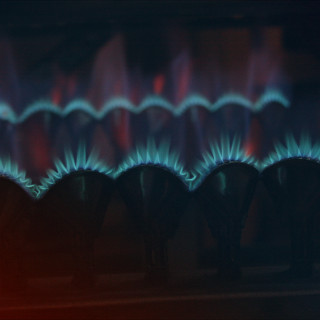
How to prepare households for an energy war with Russia? Gazprom is suspending gas supplies to Poland under the Yamal contract. This is no great surprise. At the end of this year, Poland was going to give up buying Russian gas anyway. Physically, there is unlikely to be a shortage of gas, but Poland is entering a period of high prices, which will limit the use of this raw material. The role of the state should be to wisely support society in smoothly passing through the crisis. Without reducing demand in sectors where it is possible, this will be difficult.
28.4.2022 -
Ukraine's Power System: Peace and War
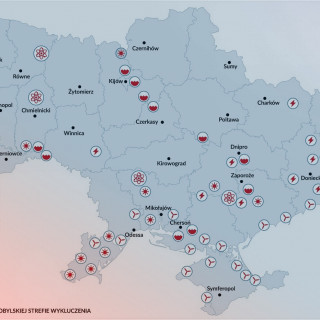
On 16 March, Ukraine was synchronised with the electricity grid of continental Europe, bidding a permanent farewell to the systems of Russia and Belarus. The connection took place in an urgent and emergency procedure. This is an important step towards sustainable cooperation with the European Union. But today, in Ukraine, there is first and foremost a warfare, as well as an energy war, which is no less important for the lives of the civilian population of Ukraine and Europe as a whole.
17.3.2022 -
The end of energy resource imports from Russia?

On February 24, Russia started the Ukrainian war. Nothing will be the same again. Russia's brutal attack made the ongoing conflict around energy resources all the more obvious. In 2021 alone Russia could have earned PLN 500 billion (or $120 billion). from the export of energy resources[1]. This revenue funds the Kremlin's military spending. Now we are considering whether giving up Russian fossil fuels is possible. Undoubtedly, this would be a radical solution with far-reaching and not entirely known consequences. If this were to happen, solidarity and close cooperation within the EU would be more important than ever before. In this article, we analyze what options Poland has to break its energy dependence on Russia.
28.2.2022 -
Lack of transformation hikes energy prices, not climate policy

A recent information campaign led by energy companies and echoed by politicians, suggests that CO2 accounts for as much as 60% of the electricity cost. This message creates an impression that the cost of buying allowances amounts to 60 percent of the end users’ electricity bill. But this is not the case. It does a great deal of harm - it distracts attention from the fundamental problems of the Polish energy sector. It distances us from solutions that can effectively stop price increases. In this article - on the basis of adopted assumptions (presented in the annex) we present, among others, what energy prices for households are actually made of.
4.2.2022 -
Poland has spent more than a trillion zloty (EUR 220 billion) on fossil fuel imports since 2000
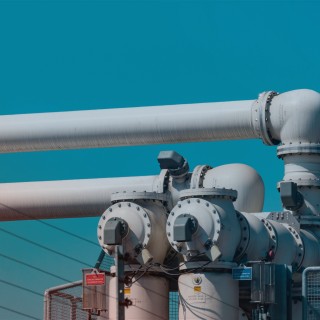
In recent months, rising energy prices have caused panic among policymakers. Gas and coal prices on world markets are at record highs, and crude oil is also becoming more expensive. In addition, Poland has become one of the EU countries most dependent on fossil fuel imports.
18.1.2022 -
The capacity market in Poland―more expensive than ever

Poland has already held six power auctions. Analysis of their results shows that this mechanism in its current form is not an optimum solution for the country. The capacity market has proved more expensive than anticipated, has failed to curb the increase in electricity prices and, in addition, has contributed to the petrification of the outdated and coal-based generation structure. The arduous task of plugging the coal gap has only just begun, which is why decisions on modernisation and on methods for supporting capacity up to 2030 must be taken urgently.
13.1.2022 -
E-mobility - a chance for further development of economic cooperation between Poland and Germany

The Polish and German economies work in a system of interconnected vessels.Even if the echoes of the visit of the new German Chancellor Olaf Scholz to Poland suggest that there are many issues that divide us, there are also those that unite us. For instance the development of electromobility may raise this cooperation to a higher level, but it is necessary to prepare strategically for it. The focus should be on cooperation in the area of technological developmentbattery production and recycling, joint planning of infrastructure, as well as exchange and sharing of knowledge, especially in the area of innovation.
20.12.2021 -
10 steps to overcome the energy crisis

The prices of coal, gas, and CO2 are reaching record levels while the price for electricity is galloping, causing panic among politicians, energy consumers, and institutions responsible for maintaining Poland’s energy security. There is a state of emergency in the Polish energy sector caused by, among other things, the situation on the energy source market, but not only. The country is also bearing the consequences of many years of postponing necessary modernisation decisions. It is time to take urgent actions that match the situation.
8.12.2021 -
The spectre of the ETS gap
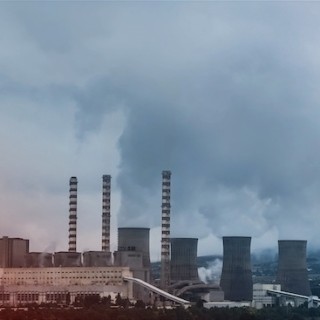
In the following months, negotiations on the Fit for 55 package, which was proposed by the European Commission in July this, year will continue. One of the key elements of these negotiations is the reform of the EU Emissions Trading System (EU-ETS). The Polish government is arguing that the number of allowances allocated to Poland will be lower than the emissions of installations covered by the ETS, creating a so-called imbalance of CO2 emission allowances. Where does the imbalance come from, and can it be reduced? And is this the most important element in negotiations of the new EU ETS? We explain below.
27.8.2021 -
From 2025 coal will leave the Polish energy system in waves

Poland’s energy sector is entering a period of major turbulence. The immediate question is the continued operation of the Turów power station since the EU Court of Justice recently ordered the suspension of lignite mining there. This is just the beginning of the problems. After 2025, when public support ends, the first 8 GW of coal capacity may leave the Polish system, and a little later, another 6 GW. The power plants will be shut down due to age and costs. Observing the government’s actions, one can get the impression that all hope lies in the proposed National Agency for Energy Security . Yet, this is a side discussion because no change in ownership structure will improve the situation of the failing coal power industry. Instead, difficult decisions must be made, and the possibilities of supporting the operation of coal-fired power plants with public money are already very limited.
27.7.2021 -
FIT FOR 55 - what will the package contain?

On 14 July, the European Commission will publish the Fit for 55 package consisting of several legislative proposals. This will officially launch the discussion on measures to achieve the interim EU climate neutrality target, i.e. a 55% reduction of CO2 emissions compared to 1990. Before these rules finally come into force, they have to be accepted by EU member countries (i.e. the Council) and the European Parliament. The negotiations will take at least a year, most likely - two. The changes will not be law until 2024, but it is high time we considered how to implement them for the benefit of the climate and the economy.
13.7.2021 -
NABE - the hibernatus of the Polish energy sector

In the film with Louis de Funès, a separate, unreal world was created for the titular hibernatus to make him feel comfortable in the new reality. With the National Energy Security Agency (NABE) that the government is proposing for coal power, it is similar. The ring-fencing of coal assets is necessary because they are making increasing losses, the power companies are in debt, and with the coal burden in the new reality they are running out of finance to invest. However, without a cost-benefit analysis for the economy and society, or an assessment of the risks, NABE, instead of unlocking the transition, may hibernate it and introduce chaos that will threaten Poland's energy security.
28.6.2021 -
Poland needs 2 GW of new photovoltaic capacity annually - that's why prosumers should be supported

The government is announcing changes in the support system for prosumers. The combination of the current operational support scheme (a version net-metering, called “rebates”), subsidies in the form of the “Mój Prąd” program and tax credits resulted in rapid development of solar energy in Poland. Within a few years the installed capacity in micro-installations increased from 200 MW to 3.3 GW. Security of energy supply in the summer has strengthened, CO2 emissions have been reduced and the generation mix has become more diversified to some extent. Citizens have fallen in love with renewables for good. So what’s next?
23.6.2021 -
The purpose of the EU-ETS and its pending reforms

Since the beginning of the year, CO2 emission allowance prices have risen by 70%, from EUR 30 to over EUR 50 per tonne. The rate of this increase has again triggered discussion in Poland on the purpose of the Emissions Trading System’s (EU-ETS) existence. Meanwhile, the EU discussion on the ETS, which is due to begin shortly, will not be about whether to abolish the system, but how to reform it so that the EU can achieve its decarbonization goals. Carbon pricing will be the most important tool for achieving the EU's 55% emissions reduction target in 2030. In this text, we explain the system’s basic operational principles and highlight expected discussion topics and possible upcoming changes.
2.6.2021 -
EU Recovery Fund: 3 things Poland needs to do for the mechanism to bring real change

The National Recovery Plans are built on credit. The investments we design today must serve future generations—our children—because we all will be paying it back until 2057. It is based on concrete reforms, changes that need to happen in order to achieve the intended objectives. The consultations on the recovery plan in Poland is now coming to an end. How should we change it so that the money pays off in the future? In this opinion, I refer to the Green Energy and Energy Efficiency Component.
31.3.2021 -
Obligation to sell electricity on power exchange―no time for sudden moves

The Ministry of Climate and Environment have announced its plans to abolish the obligation to sell electricity on power exchange by generators, a so-called ‘obligo’. A public consultation on the proposed law is underway. The topic seems technical and niche. But the effects of the planned changes will be widespread: with the electricity market not very competitive, the abolition of the obligation will increase wholesale prices and have a negative impact on consumers―mainly industrial ones. This is a step backwards in terms of competition and transparency of the electricity market in Poland.
24.2.2021 -
Green hydrogen strategy still too gray
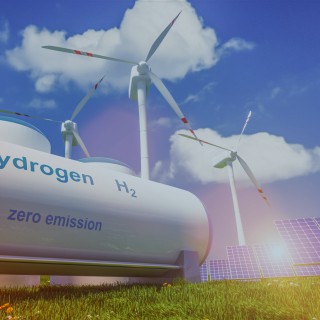
The government is about to conclude its public consultation of the draft Polish Hydrogen Strategy until 2030 with an Outlook until 2040. It gives hope that this time around Poland will join other European countries in the early stages of creating new technological solutions and supply chains. It is a chance for building national potential in a new industry and creating jobs. However, the hydrogen strategy is not yet reflected in other strategic documents defining the future of the Polish energy sector.
15.2.2021 -
Five energy projects that must happen in 2021

The future begins today, not tomorrow. The year 2020 was unusual in many ways, so many people will be relieved that it is now ending. But in terms of the energy transition, it was a watershed year. The European Union reached agreement on the European Green Deal. In Poland, the government and labour unions openly admitted that Poles need to talk about the end of the coal era. The energy sector in the country is at a crossroads and it is time for it to choose the right path for its further operation and development in 2021.
28.12.2020 -
Poland can contribute to the EU’s 55% target while solving key problems

Poland is lagging behind cutting greenhouse gas emissions, but diversifying its energy mix, making heating clean and increasing traffic electrification could improve emission reductions and transform the economy for the future.
27.11.2020 -
55% ― only without panic

EU climate policy is accelerating again. The European Commission has just proposed raising the target for reducing greenhouse gas emissions until 2030 to 55%. Poland has always opposed ambitious goals, but now a breakthrough seems possible―the end of coal is inevitable, we must take care of energy security, after coronavirus we need new investments, and reducing CO2 emissions is associated with improving air quality, which the government defines as a strategic challenge. By taking these measures now, in heat, electricity and transport, emissions can be reduced by over 40%. The remaining cuts will come from the new policies on industry and agriculture and the sharing of efforts between Member States.
18.9.2020 -
Energy sector integration | Key to becoming climate-neutral by 2050

The future energy mix will be dominated by renewable energy sources (RES) with zero production costs, such as wind farms and photovoltaics. The abundance of cheap electricity will allow for the replacement of fossil fuels, both in heating and transport sectors. Effective integration of these sectors, within one energy system, will also help to solve the problem of weather-dependent RES production.
28.7.2020 -
Renewables in the Polish energy mix. Still not enough to meet the targets

The energy transformation has accelerated significantly. Thanks to the enormous cost reduction of solar PV and onshore wind, these technologies are increasingly being chosen by the private sector and households as an investment that allows for significant savings. In recent years, however, the development of renewable energy sources (RES) has depended on state policies and support schemes. They were to enable Poland to achieve the so-called RES target - renewables were to account for 15% of gross final energy consumption in 2020[1]. According to our estimates, the target is still far from being achieved - in 2019 the share of RES amounted to 11.5% only and everything indicates that this year too, the result of 15% is out of reach.
23.7.2020 -
The EU is ready to co-finance our energy transformation ― what does the Polish government have to say?
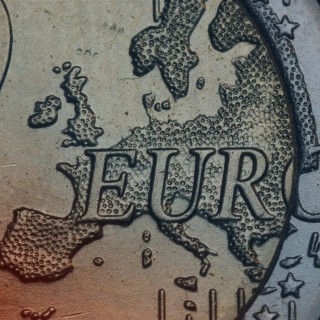
On 17 July the European Council will launch the final negotiations on the EU budget, unprecedented in scale and intended to pull the EU out of recession and give it a new boost. Since December 2019 Poland has been part of the EU discussions, trying to distance itself from climate neutrality in 2050. Although all other Member States agreed to it. For the time being, however, it seems that we may be one of the countries that will benefit most from the distribution of funds―we may gain over PLN 140 billion for the energy transition alone. Yet, the money will not be granted unconditionally. Poland needs to have a plan in place to achieve the EU's common goals―to commit to climate neutrality and to contribute to a 40% or even 55% reduction in emissions by 2030.
15.7.2020 -
Investment in the energy sector as a remedy for the crisis

After a few weeks of the pandemic in Poland, we know for sure that the virus will infect the economy, even as we finally get rid of it ourselves. We need to act decisively right now. But we also need to think about economic recovery, in which the low-carbon transformation of energy has to take a central place. This is the time for bold decisions, so far postponed. A strategic rebuilding of the sector must be announced today to help society emerge from the crisis and provide long-term benefits.
1.4.2020 -
Will the coronavirus slow down or speed up the low carbon energy transition in Poland?

The world is in chaos. The priority is to stop the spread of the virus and contain the crisis. A stable energy supply is crucial - it's hard to imagine what would happen if there was no power or heat supply now. The million dollar question however, how will the current crisis affect the energy transformation in the long term?
21.3.2020 -
2020 RES target: what if Poland does not reach it?

Poland, along several other European Union Member States, is unlikely to meet its national 15% renewable energy target for 2020 on time[1]. However, despite the possibility to impose sanctions for failure to meet national obligations, including financial penalties, the European Commission is not interested in punishing countries just for the sake of punishment. The potential consequences for countries that are lagging behind should be understood rather as a means of mobilising them to catch up, but also to increase their ambitions to meet the second of the EU RES targets - the one set in the 2030 horizon.
17.3.2020 -
European Climate Law - Back to the Future

On 4 March the European Commission has just presented a draft climate law. Its most important point is the commitment to achieve the EU's climate neutrality by 2050. But the Commission also announces an increase in the shorter term reduction target for 2030. This is an aspect that Poland needs to pay particular attention to, as we will not avoid discussing how to get closer to this target in next ten years.
4.3.2020 -
Fighting on the wrong front. Polish gvernment intends to subsidise energy consumption instead of fighting energy poverty

The Ministry of State Assets announces subsidies to energy bills for people earning less than 5 000 net per month. The reaction to the increase in electricity prices in Poland has shown that politicians are so afraid of this subject. However, they have no good idea how to solve it.
3.3.2020 -
Will the Polish offshore finally speed up?

Offshore wind farms are still a distant perspective, even though the first location permits were issued in 2012. After many years, a draft act on the promotion of offshore wind electricity generation, which is expected to accelerate offshore development in Poland, has been finally prepared. The period of public consultations of the bill ended on February 14th and there is a chance to complete the legislative efforts by mid-2020. Are the proposed solutions sufficient and will they serve their purpose?
17.2.2020 -
Just Transition Fund - we will benefit, but under conditions

The European Commission presented a draft regulation on the Just Transition Fund. This is an instrument to bring the UE closer to achieving climate neutrality in 2050 and prevent possible social exclusion. Although Poland proposed the creation of the fund, we missed the discussion about its shape.
15.1.2020 -
RES auctions in Poland | Results and trends

The RES auction marathon is behind us and we finally know the final result. Twelve auctions for various technological baskets, for new and existing installations, were held during three weeks. The contracted 90.3 TWh of new, green electricity for 15 years is worth PLN 20.2 billion. As much as 86% of this volume will be purchased at prices lower than those currently prevailing on the wholesale electricity market. This is another proof that renewable energy sources can compete with conventional units without additional support.
23.12.2019 -
Climate neutrality – Poland is in favour and even against | A talk about the results of the last European Council
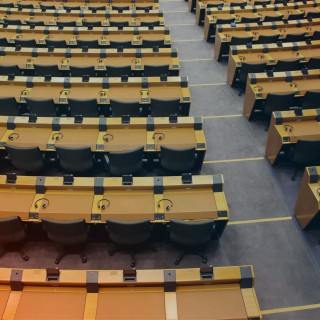
What actually happened at the recent European Council? Poland supported the goal of climate neutrality or quite the contrary? What can be expected in the coming months? Aleksandra Gawlikowska-Fyk and Joanna Maćkowiak-Pandera discuss the results of the European Council conclusions and its implications.
20.12.2019 -
The last auction of this kind...

The fourth capacity market auction was held on the 6th of December 2019. Although there were some long-awaited new projects, the Santa Claus gift (which the capacity market support could be) was offered primarily to the existing coal-fired units, which in most cases decided to modernize. They were allowed to participate in the auction for the last time, as the European Union regulations will not allow such participation from next year.
11.12.2019 -
Draft Poland's Energy Policy 2040 - new and better?

On the 8th of November 2019, the Ministry of Energy has presented an updated draft of Poland's Energy Policy until 2040. Yet, the adoption of the energy strategy will be the responsibility of the new government, including new ministries - the Ministry of State Assets and the Ministry of Climate. In our opinion, it is high time for Poland to address the climate and energy crisis. It is also important for us to start implementing the commitments made at the EU forum. The energy sector should be given a course in line with international trends, and not be allowed to float in a random direction.
29.11.2019 -
1 GW of PV in Poland - this is just the beginning

In Poland we have just reached 1 GW of capacity in photovoltaic installations. Their growth rate has accelerated in the last several months. With the increasing economic attractiveness of photovoltaics, we are no longer wondering whether this development will be continued, but what are its limits. One thing is certain - we will wait much shorter for the next gigawatt and there will be at least a few drivers of this growth.
11.10.2019 -
DEcarbonization in Germany 2030

Just before the UN climate summit in New York, the CDU/CSU and SPD coalition announced new ideas on how to achieve Germany's 2030 climate targets. For now, these are mainly national measures, but a similar discussion and perhaps similar solutions will emerge at European level. This will have a significant impact on the EU regulations concerning the energy sector, and thus also on Poland.
24.9.2019 -
Will the revenues from CO2 emissions disappear into thin air?

Low emission energy transition will cost up to 200 billion EUR in the years to come. This impressive amount may suggest that Poland cannot afford to invest in the power or heating sectors. Meanwhile, building a safe and reliable system is crucial for citizens, economy and climate. It is high time to look at potential sources of financing for low-carbon modernisation, and make sure they do not vanish into the budget.
28.8.2019 -
Climate neutrality - empty watchword or concrete goal? | The French perspective

After June negotiations at the European Council, climate neutrality is no longer an abstract concept used by international experts, but is becoming a widely commented issue of public interest. As Michał Kurtyka, President of COP24 in Katowice, said at one of the meetings of Forum Energii: "Climate neutrality is a civilisational choice for Europe".
23.8.2019 -
BlacUKout and energy transition

When electricity was cut off for almost an hour in London on 9 August, a nervous wave swept through the media, whistling up blackout throughout Europe and blaming the unstability of renewables. It was worth holding off on a moment with such opinions, because the causes and sequence of events proved to be much more complicated. The British transmission system operator National Grid has published an initial report which shows that a conventional gas-fired power plant failed in parallel to the offshore farm. And it all started with.... lightning.
21.8.2019 -
Summer peaks like a boomerang

The functioning of the Polish power system in recent weeks has been very challenging. Further records of power demand are being set, although these were only expected in August, when the average temperature is highest and the water level in rivers is low. The situation is better than in the critical year 2015, but the dispersed sources appearing in the system, especially PV, are not yet optimally exploited. We need to learn how to use them.
28.6.2019 -
Power sector after the elections | Three tasks for the new government

The Polish energy sector is at a turning point. What will the next government find after the elections in the autumn? It will inherit not only electricity market, but also smog.
19.6.2019 -
Clean heat 2030 | Costs and benefits
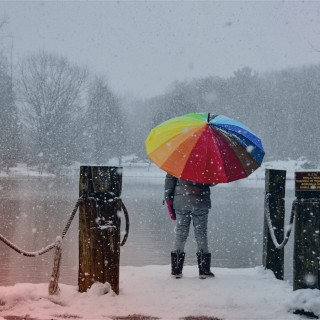
It would not be an exaggeration to say that domestic heating, both district heating and individual, is ahead of the historic bend. If we get into this turn right, we will be very successful, if not, the results may be significant.
20.5.2019 -
Energy and climate targets until 2050

The national energy and climate plans and their assessment (objectives, instruments, financing) by the European Commission are a major qualitative change in the process of developing and implementing the EU energy and climate policy. Until now, energy and climate targets have been scattered across many pieces of legislation and are now linked by the overarching objective of climate neutrality in 2050 resulting from the Paris Agreement.
21.3.2019 -
Poland’s Energy and Climate Plan to 2030 – not sufficient EU perspective

The National Energy and Climate Plan 2021-2030 is the second strategic document for the Polish energy sector in addition to the long-awaited Poland’s Energy Policy until 2040. It will affect, among other things, investments in the energy sector, the implementation of our international commitments, energy security and improvement of air quality. Therefore, it should not only describe the current state of the Polish energy sector, but above all define future objectives and determine measures and actions to achieve them.
26.2.2019 -
How much is 550 g after the end of the European negotiations?

Negotiations on the EU regulation on the electricity market were concluded on December 19, 2018. For Poland it was the last and most controversial element of the Winter Package. Since 2017, the European Parliament and the Council discussed how to formulate regulations introducing a CO2 emission limit of 550 g/kWh of electricity produced. They are to apply to the capacity markets.
21.12.2018 -
COP24 - chance for Poland

During COP24, Poland will take over the presidency in global climate negotiations for a year. We will organize a summit for 200 million PLN for the fourth time - as the only one in the world. Success will give us prestige and prove that we can lead the global debate, while failure could result in distaste.
3.12.2018 -
Polish Energy Policy until 2040 | First commentary of Forum Energii
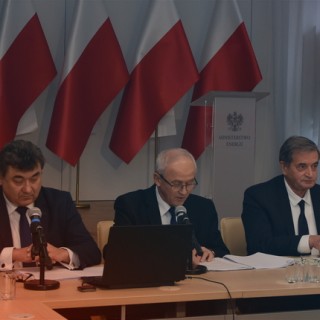
Today, the Ministry of Energy presented the State Energy Policy outline for consultation – a welcome announcement. We consider this a basis for public discussion, in which energy and environmental experts, business representatives and the broader society alike should participate. Energy affects all of our lives. Particularly at times of high energy prices we have to think about what to do next.
23.11.2018 -
Capacity market auction results | What next?

On November 15, 2018 PSE S.A. (state owned transmission system operator in Poland) held the first auction as part of the new scheme of remunerating capacity, that is a capacity market. The auction secured 22.7 GW for 2021 for a total amount of over 5 billion PLN (over 1,2 billion EUR). The cost of the capacity scheme appears significantly higher than the 4 billion the Ministry of Energy assumed for the year.
19.11.2018 -
The amendment to the Energy Law Act lowers the rank of the Poland's energy policy

The draft amendment to the Energy Law (October 2018) prepares the implementation of the EU requirement to submit integrated national plans in the field of energy and climate. The regulations proposed in this form, however, lower the rank of the national energy policy. They also change the mode of appointing the President of the Energy Regulatory Office, which may affect its independence. This is worrying.
16.11.2018 -
Benefits from rising prices of CO2 emission allowances

Discussions about rising prices of CO2 emission allowances will not remain silent. When buyers pay more, the state budget gains. Poland should allocate these funds for low-carbon modernisation.
6.11.2018 -
Hidden potential of district heating

Up to 2 GW of additional power in summer peaks can be supplied by the existing heat and power plants to the National Power System (NPS). This is four times more than the capacity of the new Turów power plant unit, which is currently under construction. Such a potential lies in the production of network cooling, accumulation of heat, running in "condensation" mode (without heat production) and cogeneration. Reaching for these resources will improve the security of the energy system and reduce emissions to the environment.
8.10.2018 -
An EU anti-smog fund for Poland

Poland has some of the worst air quality in the EU. But fighting smog is expensive. The Modernisation Fund set up as part of the Emissions Trading Scheme could help here.
19.9.2018 -
Spring is coming in the DSR

Last year, PSE launched the first edition of the DSR program. Its outcomes are positive. However, this year it could be much better. Apart from the second edition of the PSE program, the capacity market is also starting.
5.4.2018 -
The meaning of the EC decision on Polish capacity mechanism
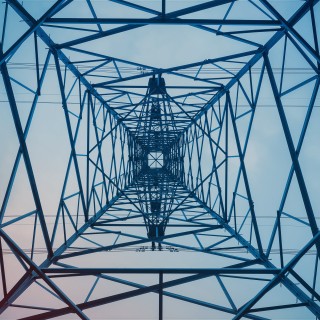
The year 2017 in the Polish power sector was marked by the preparation of the Capacity Market Act. The purpose of this regulation is to improve the profitability of Polish generators and to stabilize electricity supplies in the future.
7.2.2018 -
The US is withdrawing from the Paris Agreement - what does it mean?

President Donald Trump has announced the retreat of the Paris Agreement and a wish to renegotiate the global agreement. Trump's decision has a political dimension and will not have an impact on Europe's energy strategy.
2.6.2017 -
A low-emission economy is a global model

The Paris Agreement is not only a success for the negotiators, but above all evidence of the growing interest in the development of a low-emission economy. According to the International Energy Agency, within 5 years RES capacity will constitute 60% of all power in the energy sector. Despite the fact that we are only talking about capacities and the real production of green energy is lower, it is a strong signal concerning the trend of energy production in the world.
16.11.2016 -
Why Paris is important?

The final phase of negotiations aimed at counteracting climate change has commenced in Paris. For the first time in 8 years there is a real chance to sign a global agreement. Two countries which have been the most sceptical till now and, at the same time, responsible for the biggest greenhouse gas emissions - the USA and China, have decided to limit the emissions and, among others, to develop renewable energy resources.
4.12.2015 -
Power deficit in the Polish power system in August 2015
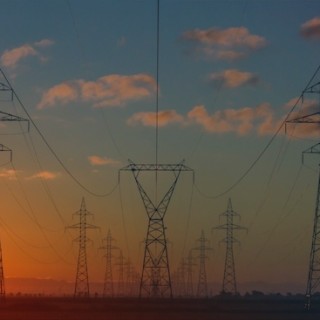
The heat wave which affected the whole country from the beginning of August, in combination with the hydrological conditions of the main rivers, resulted in deterioration of the operating conditions of power generation equipment and power networks in Poland. As a result, PSE SA (Polskie Sieci Elektroenergetyczne, the Transmission System Operator) imposed various levels of limitations of power supply for industrial consumers until the end of August. Such measures were taken for the first time in many years.
23.9.2015 -
Is isolationism profitable?
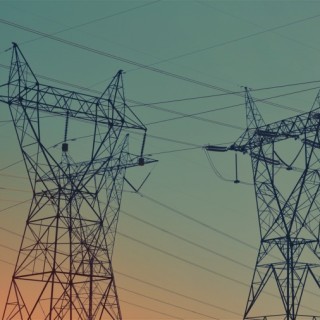
Below you will find opinion on the article concerning the text entitled "Import of cheap energy – higher costs for consumers" by Prof. Władysław Mielczarski, Ph.D. Eng., Łódź University of Technology, BiznesAlert, published on the CIRE website (in Polish) on the September 7, 2015.
16.9.2015